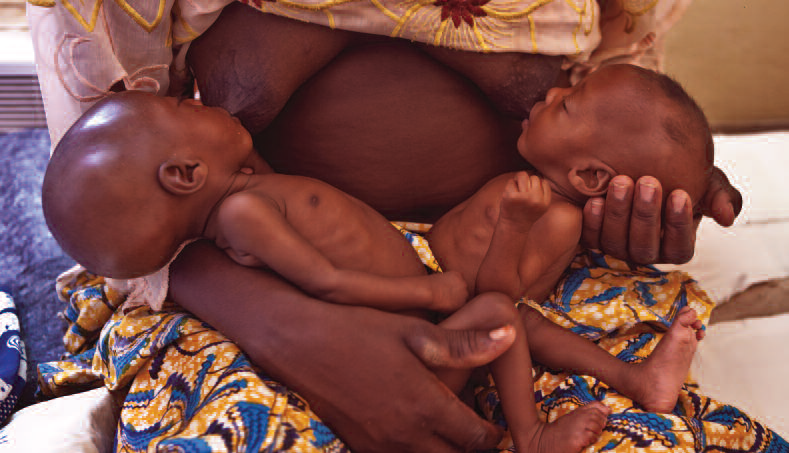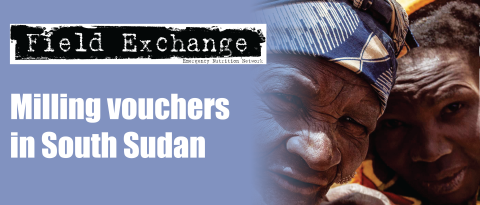En-net update and MAMI thematic area launch
 By Tamsin Walters, en-net moderator
By Tamsin Walters, en-net moderator
Over the period October 2013- Jan 2014, 43 questions have been posted on en-net, along with 166 responses and 48 vacancy announcements.
The Prevention and treatment of severe acute malnutrition forum area received most questions (15) followed by the Assessment and Coverage Assessment areas.
An interesting discussion in the Infant and Young Child Feeding Interventions forum area raised the question of whether wet nursing should be recommended in HIV prevalent areas where replacement feeding is not safe but there is no HIV testing available. Some quite contrasting views were expressed, largely depending on whether respondents are working predominantly in an HIV context or in an emergency one, and the tricky question of how to balance the risk of HIV infection against the risk of significant undernutrition of the infant was discussed, as well as the options available to try to mitigate both risks.
 A contribution from WHO suggests that in emergency situations, “the overall balance of risks for HIV-free survival of infant/child is very likely to be in favour of breastfeeding, either by the mother or by a wet nurse, even if their HIV status is unknown. None of these considerations detract from the seriousness of potential HIV transmission through breastfeeding. However, the probability of death from diarrhoea or malnutrition is likely to be higher”. Potential ways to manage the risks are suggested to provide a helpful steer for fieldworkers facing this situation. To read more on this or to join the discussion, go to http://www.en-net.org.uk/question/1218.aspx
A contribution from WHO suggests that in emergency situations, “the overall balance of risks for HIV-free survival of infant/child is very likely to be in favour of breastfeeding, either by the mother or by a wet nurse, even if their HIV status is unknown. None of these considerations detract from the seriousness of potential HIV transmission through breastfeeding. However, the probability of death from diarrhoea or malnutrition is likely to be higher”. Potential ways to manage the risks are suggested to provide a helpful steer for fieldworkers facing this situation. To read more on this or to join the discussion, go to http://www.en-net.org.uk/question/1218.aspx
A discussion raised in the Cross-cutting issues area questions why nutrition interventions tend to be poorly integrated into public health systems in humanitarian settings. Humanitarian nutrition interventions are often implemented separately from health or water, sanitation and hygiene (WASH) activities, with senior staff employed in a specific nutrition-focused role, while the community health worker at village level is engaged in performing all the tasks related to health and nutrition. The integration of services is often lacking and this presents a challenge when direct donor-funded implementation is handed over to the public sector.
To read more or to join the discussion, go to http://www.en-net.org.uk/question/1167.aspx
A further discussion entitled “Do you think your child is malnourished?” highlighted recent findings that predominant barriers to uptake of CMAM are frequently reported as “lack of knowledge of malnutrition” and lack of knowledge of the CMAM programme available. The discussion sought to examine how better communities can be sensitised around understanding and presenting early problems/growth faltering in their children, as well as how the language of the approach by practitioners might need to change and adapt to the local context, exhibiting a greater cultural understanding of how caregivers view the nutritional status of their children and the appropriate response. “By understanding the concept of growth within the community, one can design better messages for enhancing growth and the uptake of interventions within that community”. To read more or to contribute to the discussion, go to http://www.en-net.org.uk/question/1228.aspx
Finally we would like to announce the launch of a new thematic area on en-net, Management of acute malnutrition in infants less than 6 months of age. The latest WHO guideline updates on the management of SAM in infants and children (2013) (see news piece in this issue) specifically mentions this age-group for the first time. Inpatient care is recommended for complicated cases and outpatient management for uncomplicated cases. There remains a lack of evidence and detailed guidance on how to identify and intervene with this age-group at community level. This is a priority area of research. In the meantime, we hope that the en-net technical forum will provide a space for practitioners to exchange experiences to inform management of cases you are seeing in your programmes. To join any discussion on en-net, share your experience or post a question, visit www.en-net.org.uk
Contributions from Marie McGrath, Nigel Rollins, Cornelia Wakhanu, Lio and Martha Mwangome


